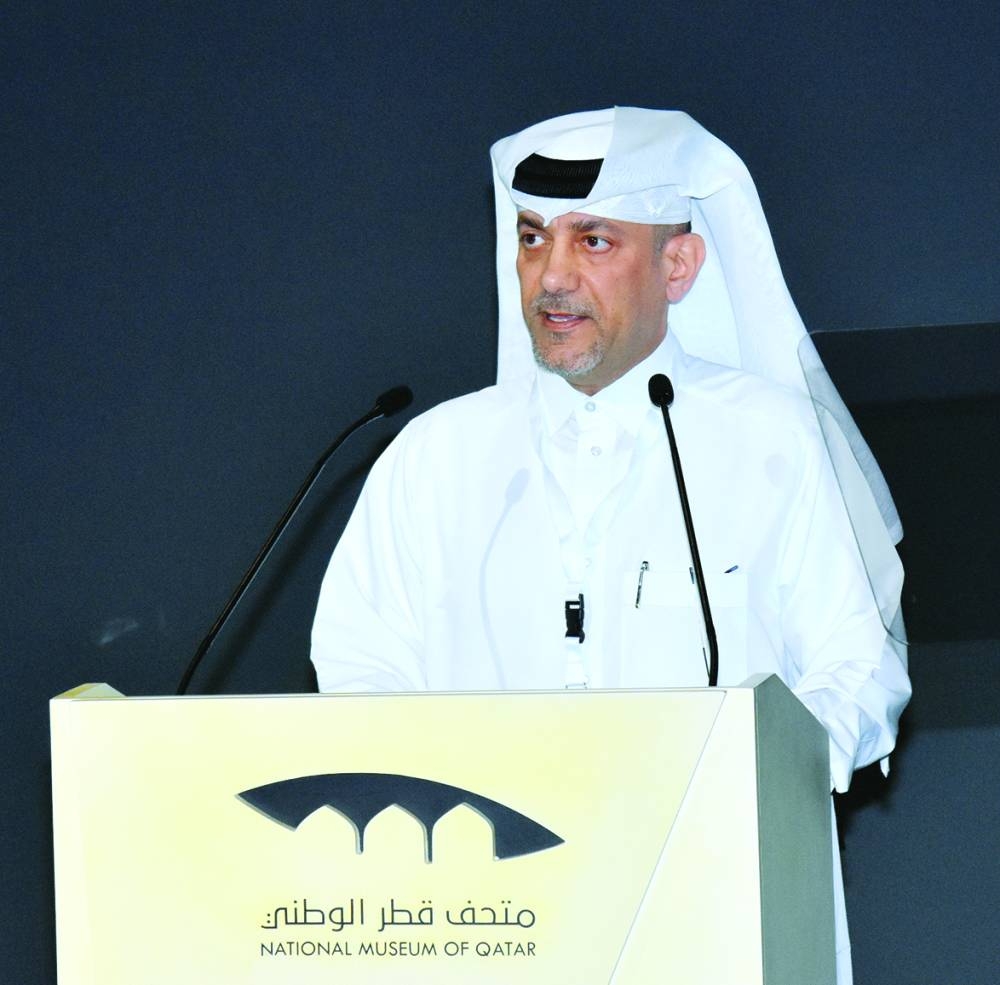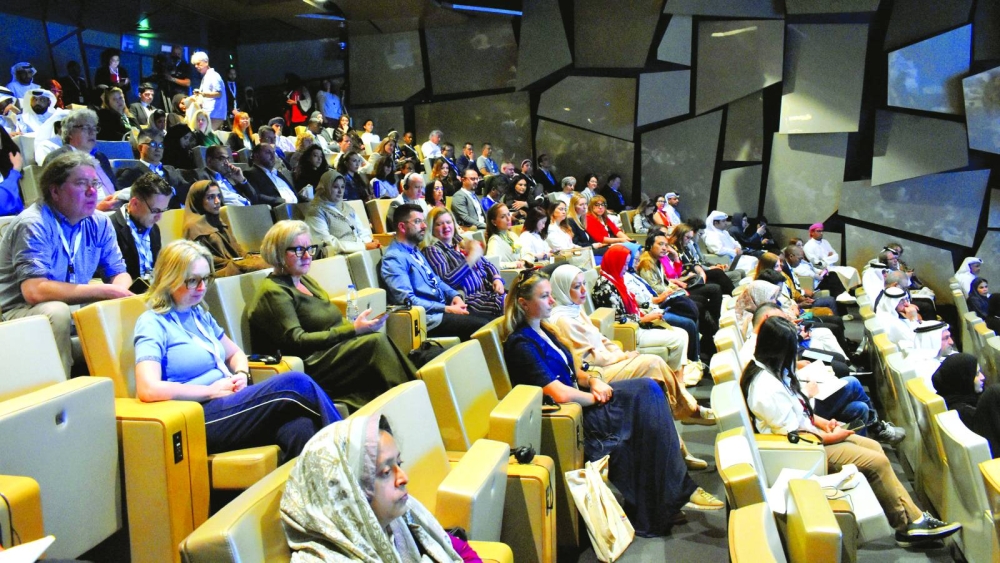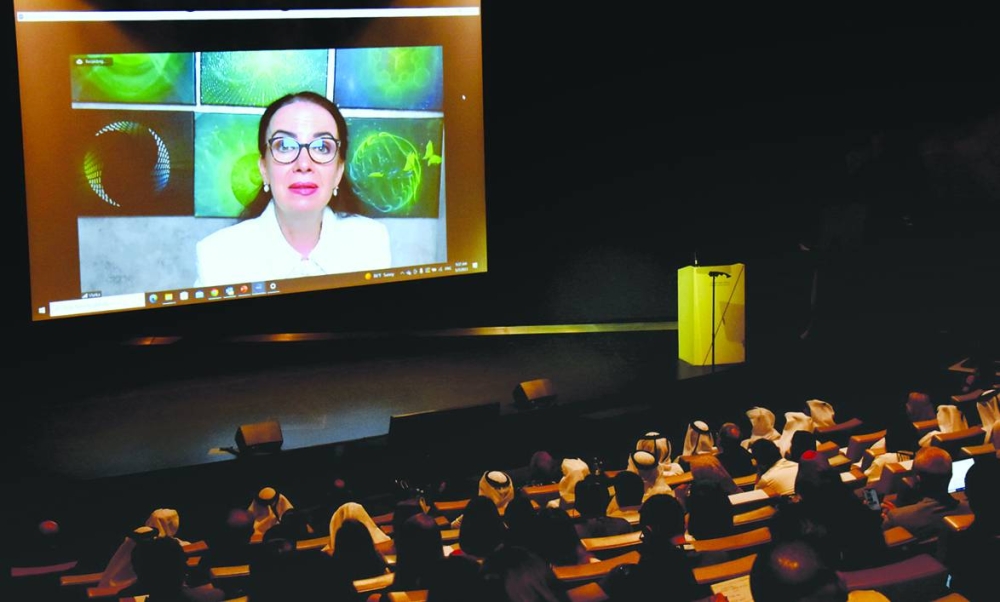The Intercom Doha 2023 conference kicked off Sunday at the National Museum of Qatar (NMoQ), bringing together museum professionals from across the globe to exchange knowledge and discuss the latest advancements in the industry.
“The conference marks the very first time that Qatar has been host to the International Committee for Museum Management, Intercom: one of the most important committees in the world for helping museum managers set standards and establish best practices,” QM Chairperson HE Sheikha Al Mayassa bint Hamad bin Khalifa al-Thani said in her speech.
“I look forward to collaborating and sharing ideas and insights that will help one another continue to move forward in managing our institutions, and, more importantly, our futures.
“Most of all I look forward to sharing what Qatar has done to develop its own authentic museum experience about Islamic, Arabic and Qatari heritage and culture,” HE Sheikha Al Mayassa added.
Titled ‘The Future Museum: Framing the Skills and Mindsets of the Visionary Leader Conference’, the three-day event organised by Qatar Museums (QM) offers participants the opportunity to attend a series of keynote speeches and panel discussions, as well as take part in a number of workshops.
Session one Sunday witnessed Dr Vlatka Ariaana Hlupic, professor of Leadership and Management at Hult International Business School, focusing on 'Profiling the Leader: Key Skills and Future Mindsets of the Museum Leader'. John Wetenhall of The George Washington University Museum in the US presented Charging for Charity while Anne-Marie Gilis of KU Leuven in Belgium puts a spotlight on Qatar's emerging museum landscape.
Dr PierLuigi Sacco, professor of Cultural Economics, IULM University Milan; senior researcher, metaLAB at Harvard, and visiting scholar at Harvard University, and special adviser to the European Commissioner for Education and Culture, talked about ‘Museums as Platforms of Behavioral Change for Societal Challenges’ during the afternoon session.
Prof Dr Desmond Hui, professor and head of the Department of Art and Design at The Hang Seng University of Hong Kong, is also set to deliver a keynote speech Monday titled ‘The Future Museum for cross-cultural exchange of knowledge and experiences during the morning session.
Other presentations Monday will include ‘The “cultural identity” model of Fondazione Brescia Musei’s Alliance for Culture’ by Stefano Karadjov from Fondazione Brescia Musei, Brescia, Italy; The Future Museum by Cristina Beard from Provincial Museum Network of Lugo, Spain; The Museum as Family Home: Shaping a New Mindset for Museum Leadership in West Africa by William Geblerkpor from Museum of Natural and Cultural Heritage at Shai Hills – University of Ghana; Leadership and Patrons by Anna Dentoni from Promotori Musei del Mare, Galata Museum, Genoa, Italy; The impact of the visit to the US Museum on the management thinking of the Capital Museum leader Han Yong by Yu Qihe from School of Foreign Languages in Southeast University, China; Sustaining Art Museums: A Study of Corporate Governance of M+ by Anqi Li from The University of Hong Kong; Challenges and benefits of succession planning: a case of the national museums of Zambia by Esther Kabalanyana Banda from Lusaka National Museum, Zambia; Louvre Abu Dhabi: and A Blueprint Universal Model Paving the Way for the Future of Museums in the Region by Manuel Rabate from Louvre Abu Dhabi, UAE.
Day three will see a series of roundtable discussions and presentations by QM speakers and experts, and those from the region, focusing on Museum Leadership Across Mena, Museums and Society, Museum Audiences and Cultural Leadership, and New Museums and New Ideas.
QM CEO Ahmad Musa al-Namla said: “As the pre-eminent cultural institution in the region, QM plays a crucial role in driving change and serving as a role model for the museums sector. The conference provides an ideal opportunity to gain knowledge and insights from one another, and to extend a warm welcome to our colleagues from across the globe to experience our rich cultural heritage, dynamic contemporary art scene, and exceptional array of museums and galleries.”
Sheikha Amna al-Thani, acting deputy CEO of Museums, Collections and Heritage Protection, and NMoQ director, said: “We are incredibly proud to be hosting Intercom Doha 2023 this week, and to have the chance to bring together museum professionals from around the world in conversation, to discuss ideas and visions for the future. We look forward to showcasing our vibrant museum scene and sharing our experiences and perspectives on the future of museums with the international community.”
Dr Fatema al-Sulaiti, director of International Co-operation and Governmental Affairs, shared her view on the conference’s importance in offering a forum for museum directors, curators, educators, researchers, and communications professionals to tackle the challenges and other hindrances confronting cultural institutions, in addition to deliberating on the latest innovations and trends in the sector.
“The focus of Intercom Doha is particularly timely as it provides a platform for participants to examine the findings of Icom-Intercom’s recent research into the effects of global crises on museum leaders and decision-makers. QM is honoured to host this gathering that will generate fresh perspectives and solutions on a matter of significant importance,” she said.
Intercom chair Dr Goranka Horjan said: “The latest global research by Intercom has revealed that good museum leadership and governance is a complex matter. A main goal of the Icom’s Intercom is to explore strategies that can assist museum professionals in running their institutions.
“The conference in Doha focuses on how to equip museums with visionary leadership and useful management tools designed to communicate the value museums provide to society, which will in turn, make the decision-makers, legislators, and other interest groups more committed to museums and to understand that value.
“In addition to this, better advocacy is needed to provide support and funding, and to explore new opportunities for museums to deal with present and future challenges like sustainability, digital transformation, climate change, funding issues, new working environments, and operational demands."

QM chairperson HE Sheikha Al Mayassa bint Hamad bin Khalifa al-Thani speaks at the opening of the Intercom Doha 2023 conference Sunday at NMoQ. PICTURE: QM

HE Sheikha Al Mayassa bint Hamad bin Khalifa al-Thani at the conference. PICTURE: QM

QM CEO Ahmad Musa al-Namla speaks at the event. PICTURE: Thajudheen

Intercom chair Dr Goranka Horjan at the Intercom Doha 2023 conference opening. PICTURE: Thajudheen

Museum professionals from across the world gathered in Doha. PICTURE: Thajudheen

Dr Vlatka Ariaana Hlupič delivers a keynote speech. PICTURE: Thajudheen

